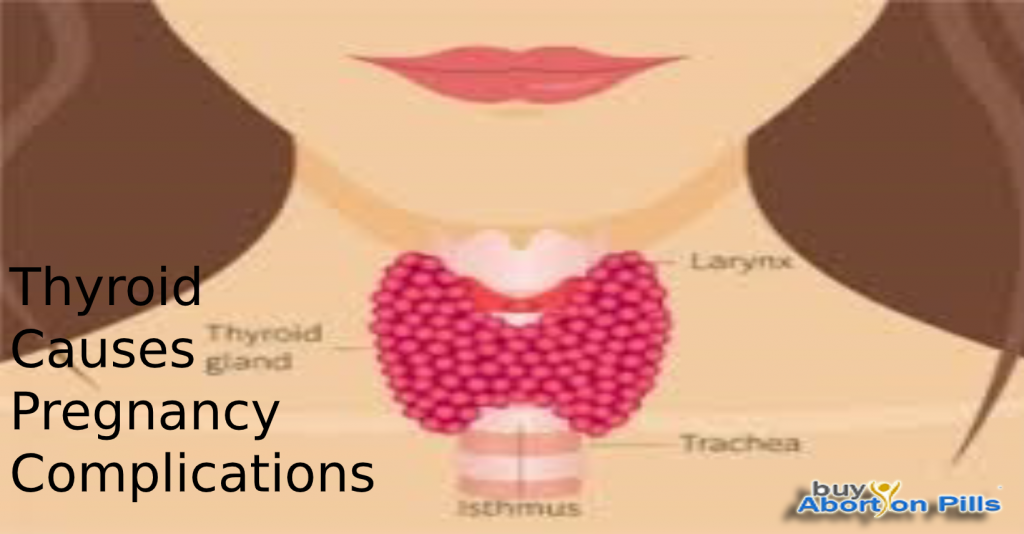
The thyroid is a disease that you would often see occurring in pregnant women. There are two types:
- Hypothyroidism
- Hyperthyroidism
If you get diagnosed with thyroid problems, it is essential that you address it as soon as possible and treat it.
The thyroid is an organ present in front of your neck. The organ secretes certain hormones that control our metabolism. Meaning, the organ creates manages how your body will use energy. Additionally, the thyroid also regulates the heart, the temperature of the body, weight, nervous system, etc.
Thyroid hormones play an important role in the growth of the fetus developing its brain, nervous system in the first trimester of the pregnancy.
These hormones deliver necessary nutrients through the placenta in which the baby depends. As the pregnancy crosses its twelfth week of gestation, the fetus starts producing its own thyroid hormones.
This could be one of the reasons why gynecologist said the fetus is abnormal and may face physical difficulties causing to opt abortion access
Estrogen and gonadotropin are the two pregnancy-related hormones which impact the thyroid levels in the body. They can make the thyroid levels to increase in certain cases. And hence, healthcare providers find it difficult to identify thyroid during pregnancy. That being said, particular symptoms, along with a medical examination, can help confirm the problems.
For women who already have thyroid problems before conceiving have to be extra careful during the pregnancy.
They can have regular medical checkups and testing to control thyroid problems, especially in the first three months. This is to ensure that the thyroid does not create complications in the pregnancy.
The following are some of the thyroid symptoms which are similar to pregnancy symptoms.
- Weight loss
- Persistent vomiting
- Palpitations
- Fatigue
In such cases, it is advised to consult your healthcare provider and get medical attention.
If you neglect the symptoms of the thyroid during pregnancy, it can lead to complications in pregnancy, such as miscarriage, premature birth, preeclampsia, low birth weight, etc. Hence, it becomes essential for the woman to see a doctor and not ignore any symptoms that can possibly lead to thyroid problems during pregnancy.
However, how to understand if a woman has thyroid symptoms during pregnancy? Here’s how – Observing the thyroid symptoms becomes difficult as they appear similar to normal pregnancy symptoms.
However, you can have a check through the following:
- Low weight gain (not as per the expected weight gain for normal pregnancy)
- Trouble in sleeping
- Tremor
- Anxiety
- Irregular heartbeat
Hypothyroidism:
Hypothyroidism symptoms:
- Constipation
- Cramps in the muscles
- Increased sensitivity to cold temperatures
- Reduced focus
Causes:
Following are the causes of hyperthyroid problems:
- Autoimmune disorder. This is a health condition wherein the body produces antibody proteins in the presence of bacteria. It is called TSI, meaning, Thyroid-stimulating immunoglobulin. The protein overproduces thyroid hormones.
- Your body can produce TSI even after you have undergone radioactive iodine surgery to treat your thyroid. In such cases, if its level increases excessively, it can reach the fetus. As a result, the thyroid levels rise more than necessary levels. Hence, it is advised to see the symptoms and check the thyroid levels regularly. If ignored, it can affect both the baby and the mother. You can get medical attention and get it treated at the earliest.
- Hypothyroidism, popularly known as hypothyroid disease, is an autoimmune disorder. In medical terms, it is known as thyroid Hashimoto’s thyroiditis. When you are diagnosed with hypothyroidism, your body affects the cells present in the thyroid gland. As a result, the thyroid lacks cells and enzymes to make adequate thyroid hormones, failing to meet the thyroid requirements of the body.
How can you diagnose thyroid disease during pregnancy?
- Symptoms
- Physical Exam
- Blood tests
Through the methods mentioned, the healthcare provider checks the levels of TSH, T4, and T3. It helps diagnose thyroid problems during pregnancy.
How can we treat thyroid disease during pregnancy?
- An antithyroid medication, propylthiouracil works against the production of thyroid hormones. The medicine is typically given in the first trimester.
- If the pregnancy has crossed the first trimester, the healthcare provider may prescribe methimazole to consume.
- In some instances, the woman may not respond to the medications above or encounter its side effects from the therapies; medical experts suggest getting a surgery done to treat thyroid problems.
- If these thyroid problems do not get proper treatment, the woman may face severe problems after the delivery of the baby. In such cases, the healthcare provider may increase the dose of medication.
- For treating hypothyroidism, levothyroxine, a synthetic hormone is used in the medications. This hormone is similar to T4.
The bottom line:
Even if you are undergoing the medication treatment, it is advised to get checked after every 406 weeks during pregnancy. If you are already on medication even before the pregnancy, you should inform your doctor for the same. Healthcare may make some changes in the medicines during pregnancy.
